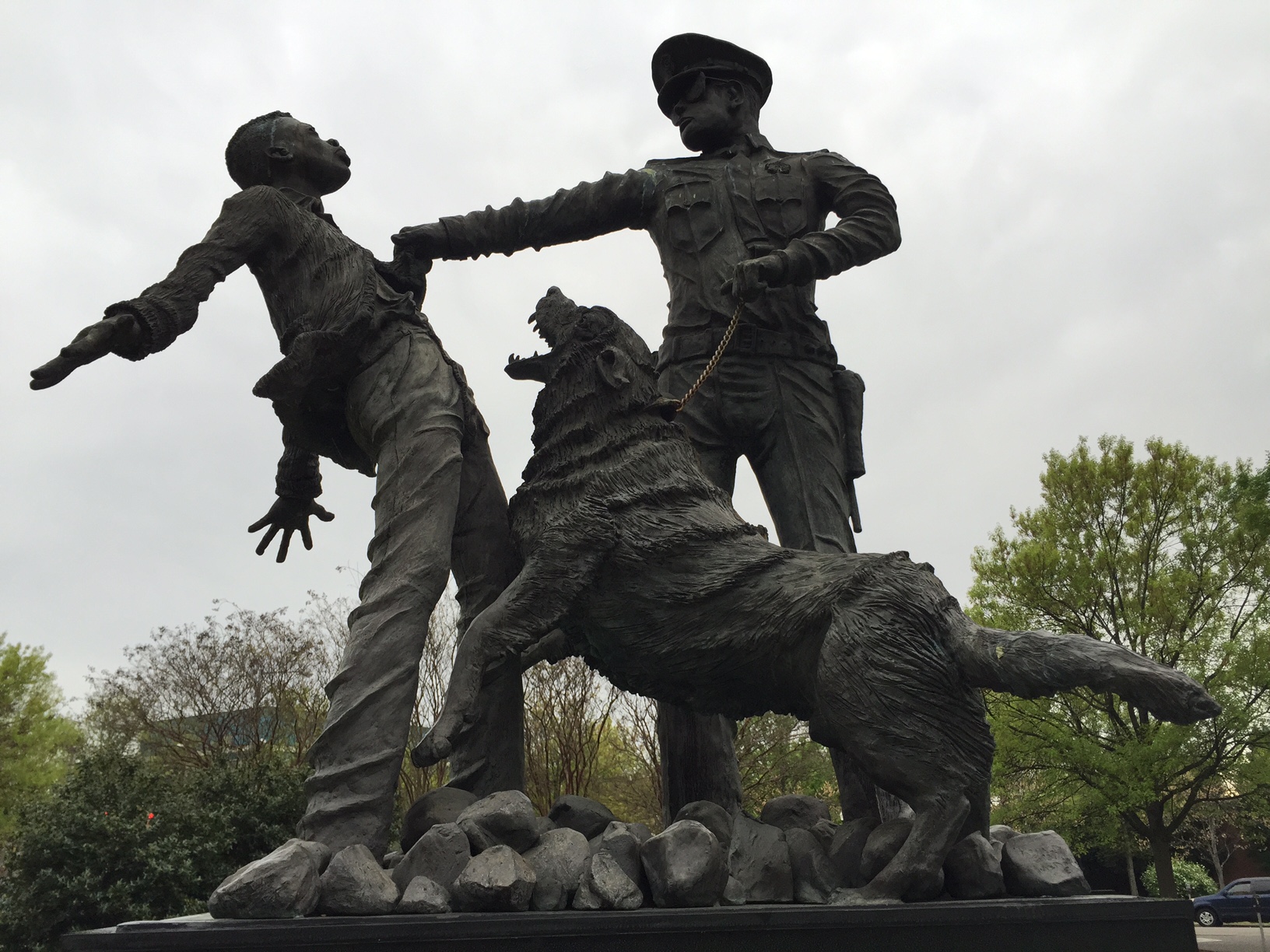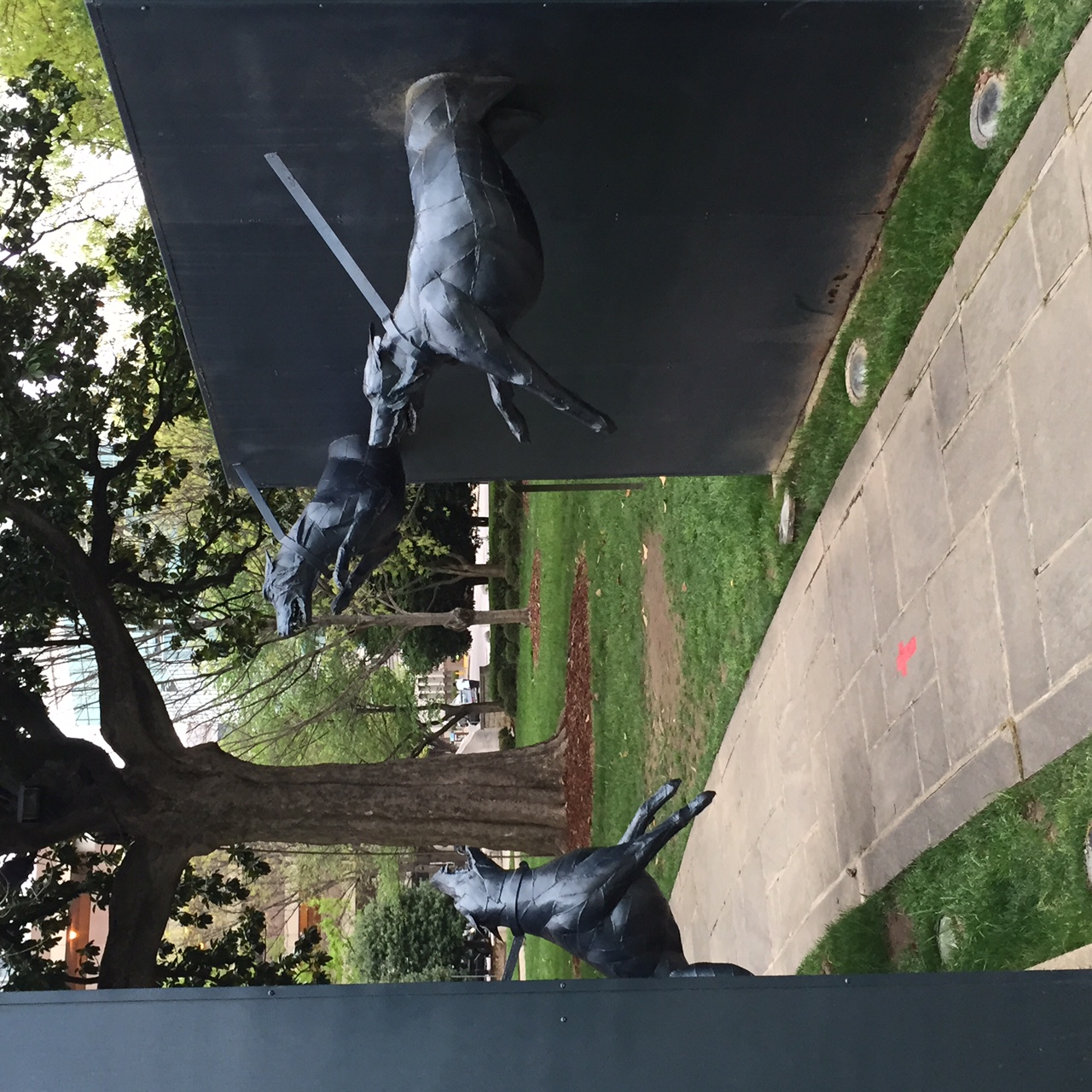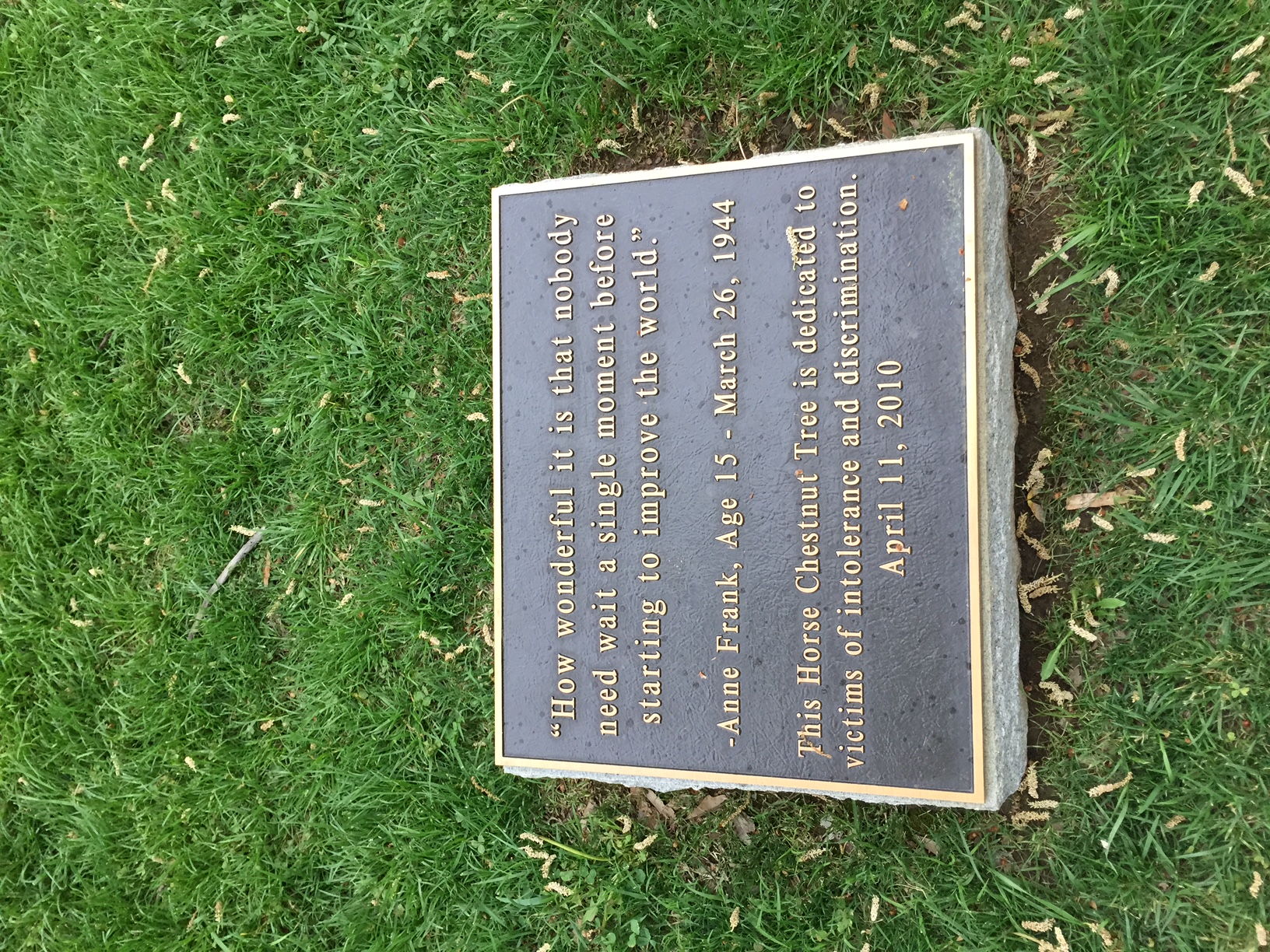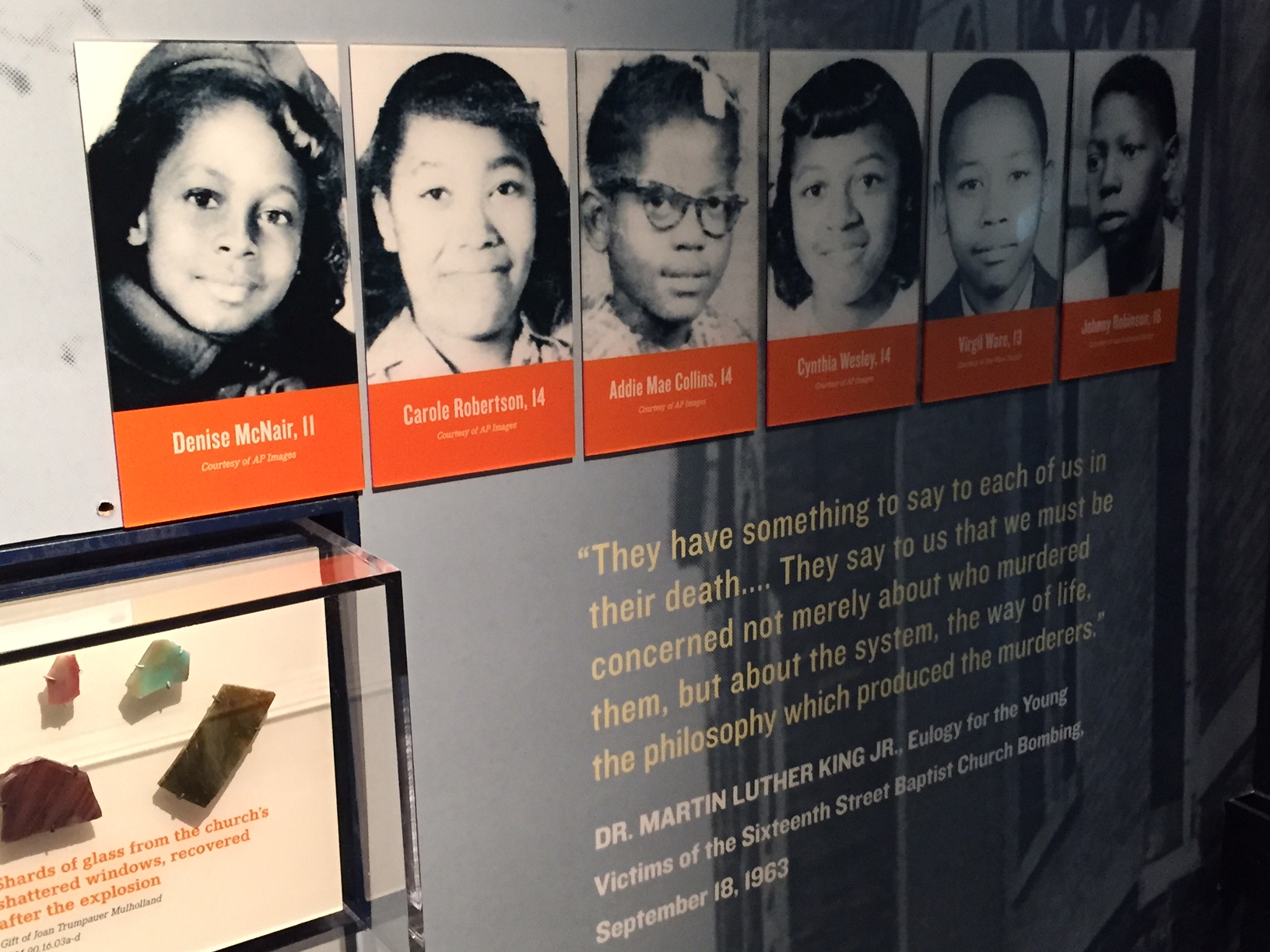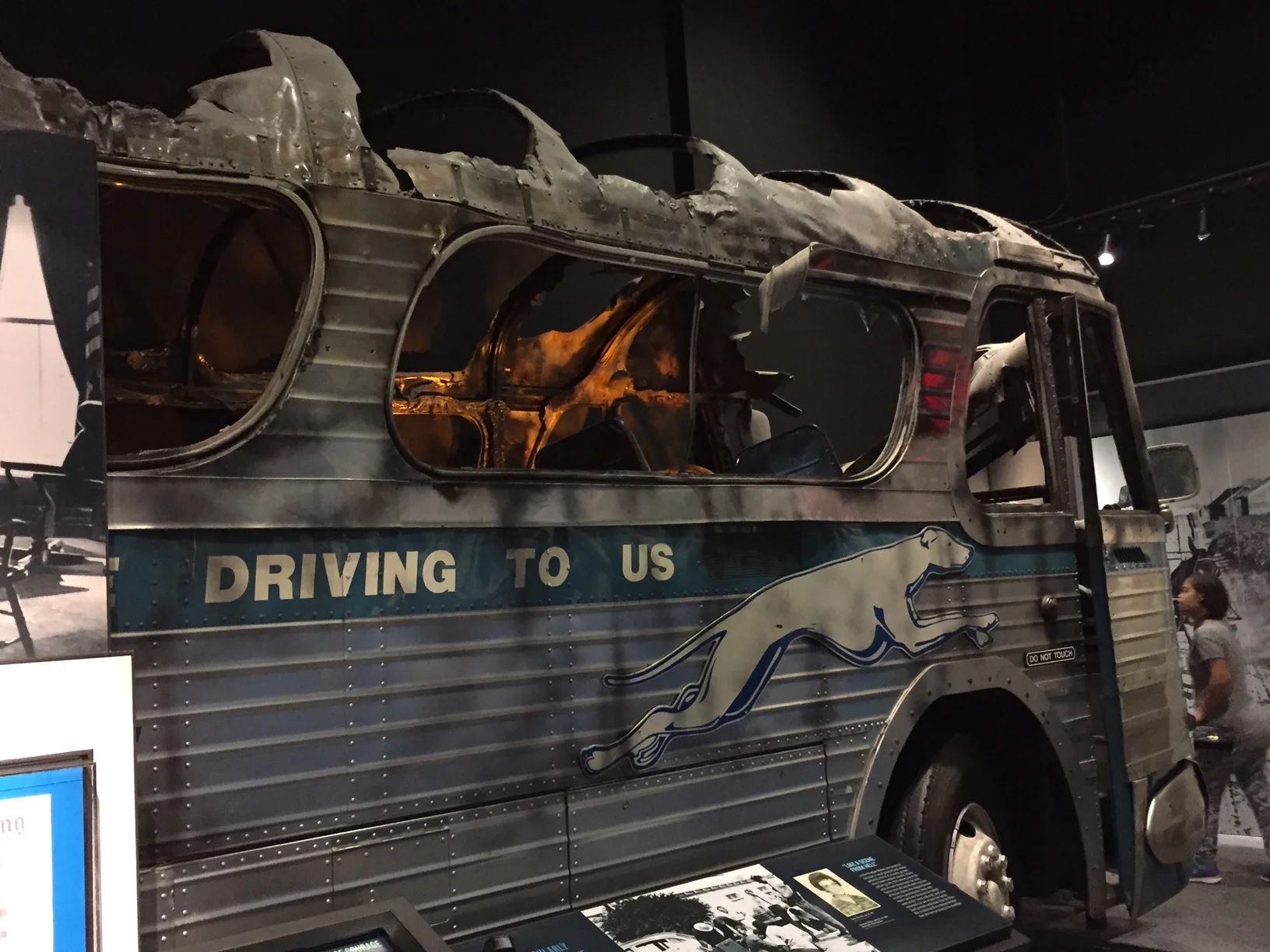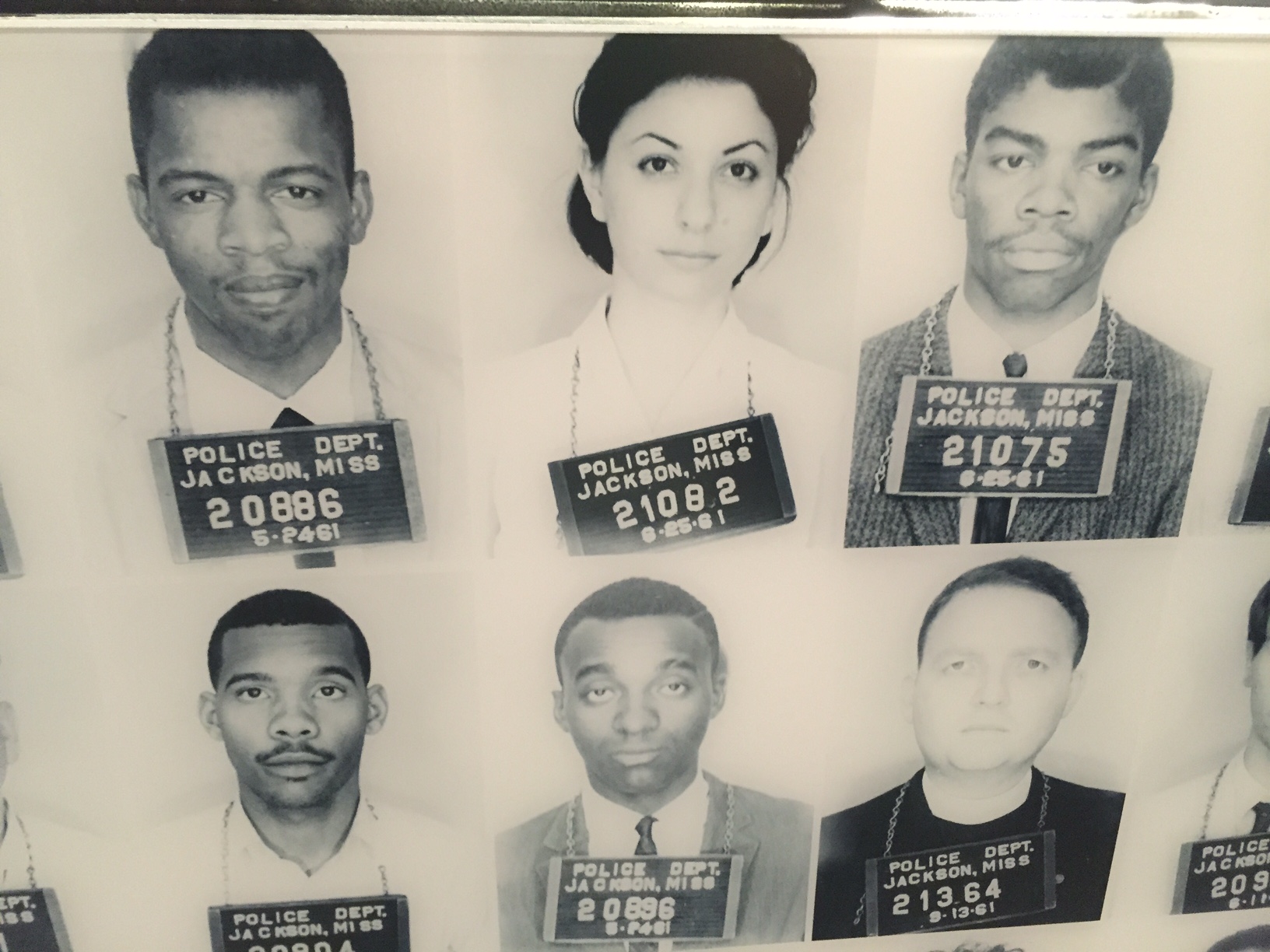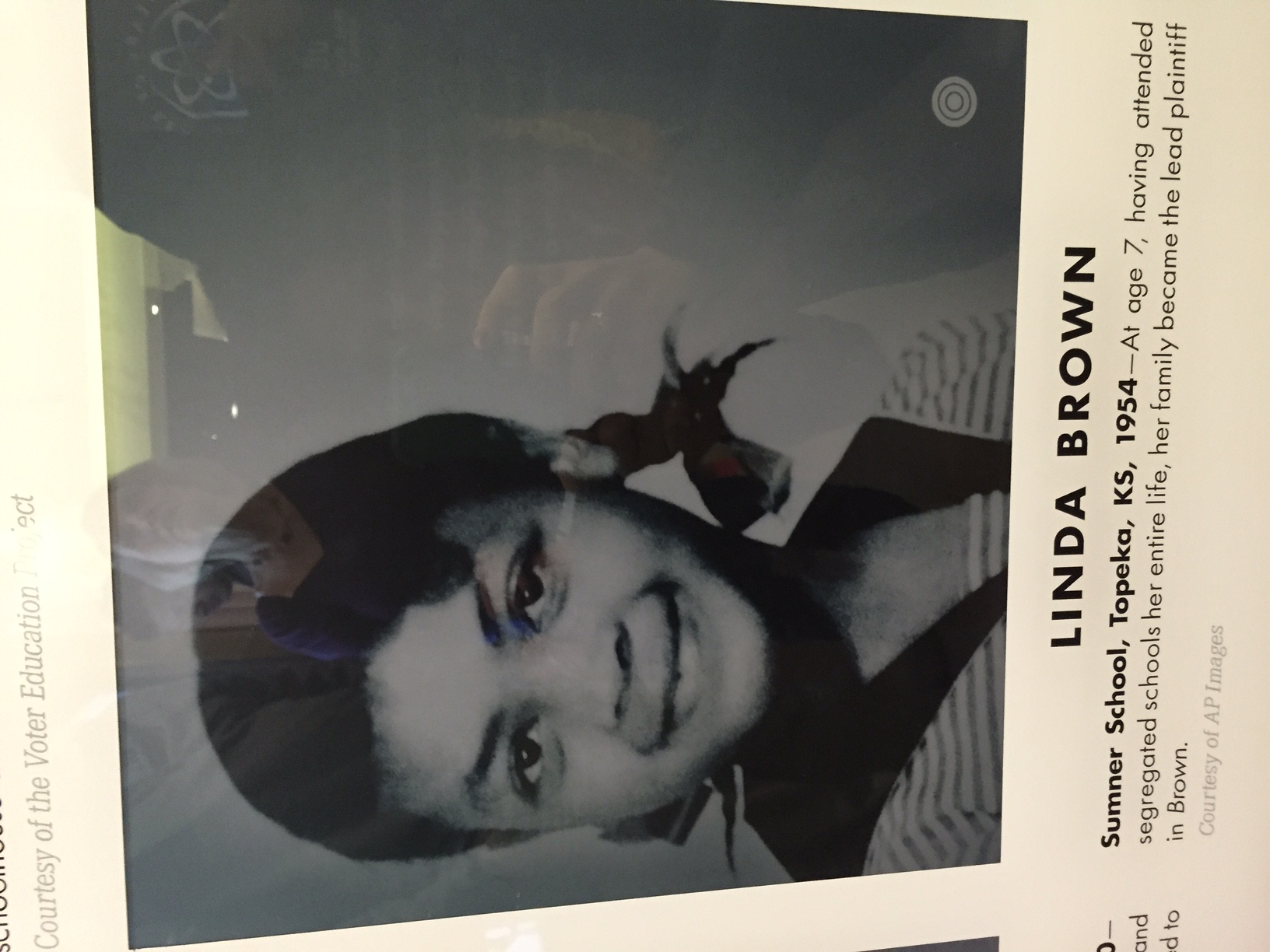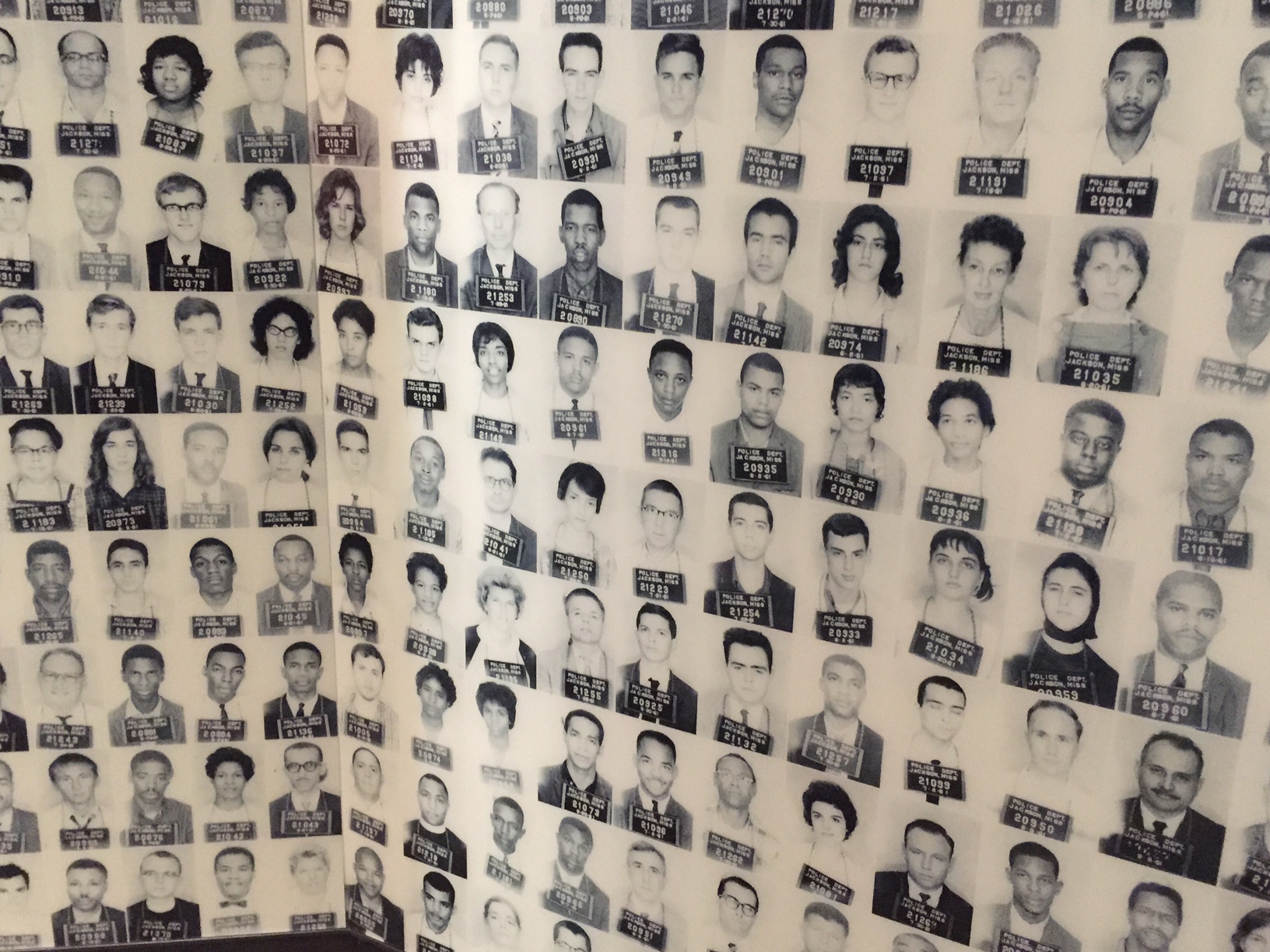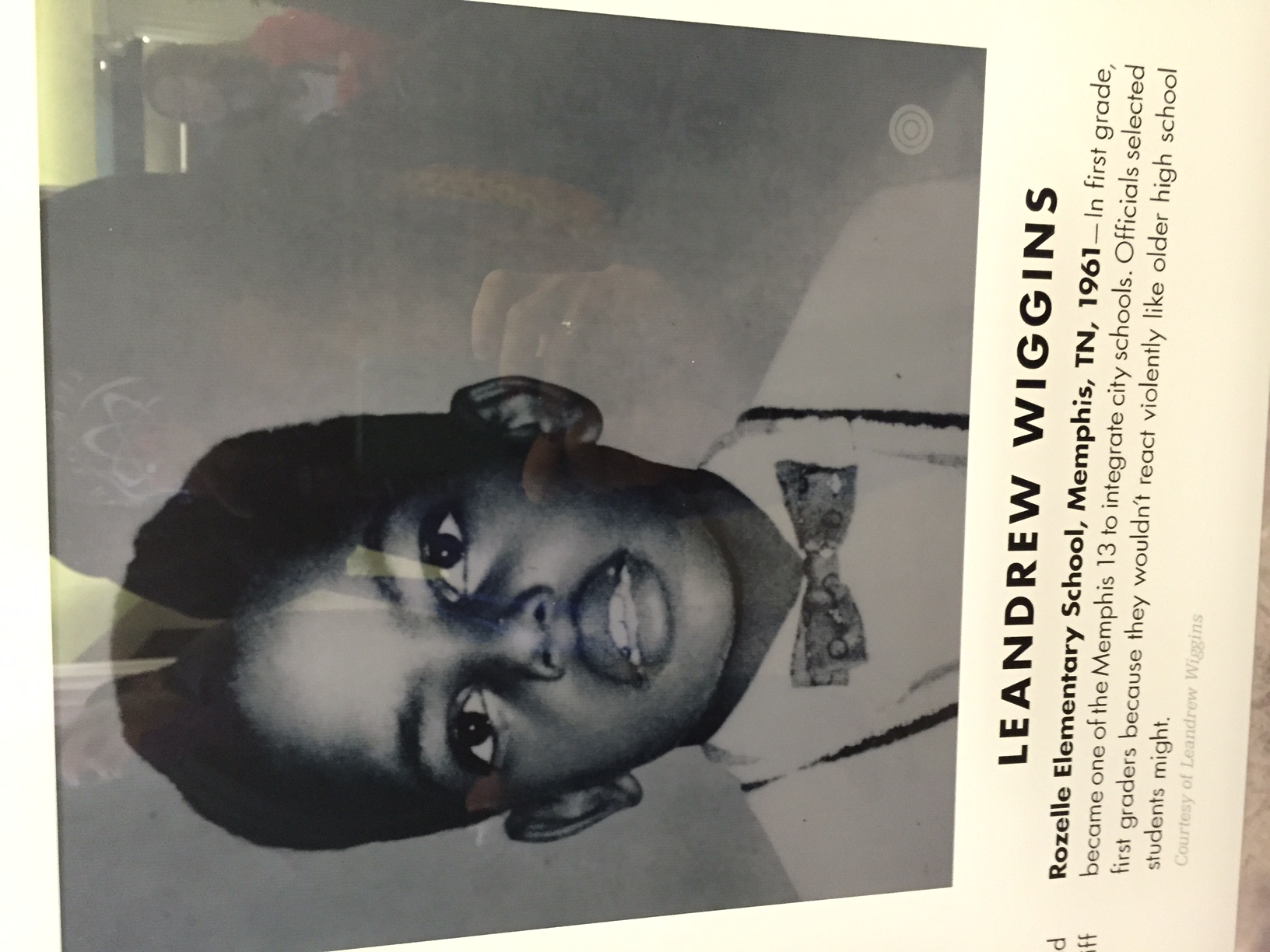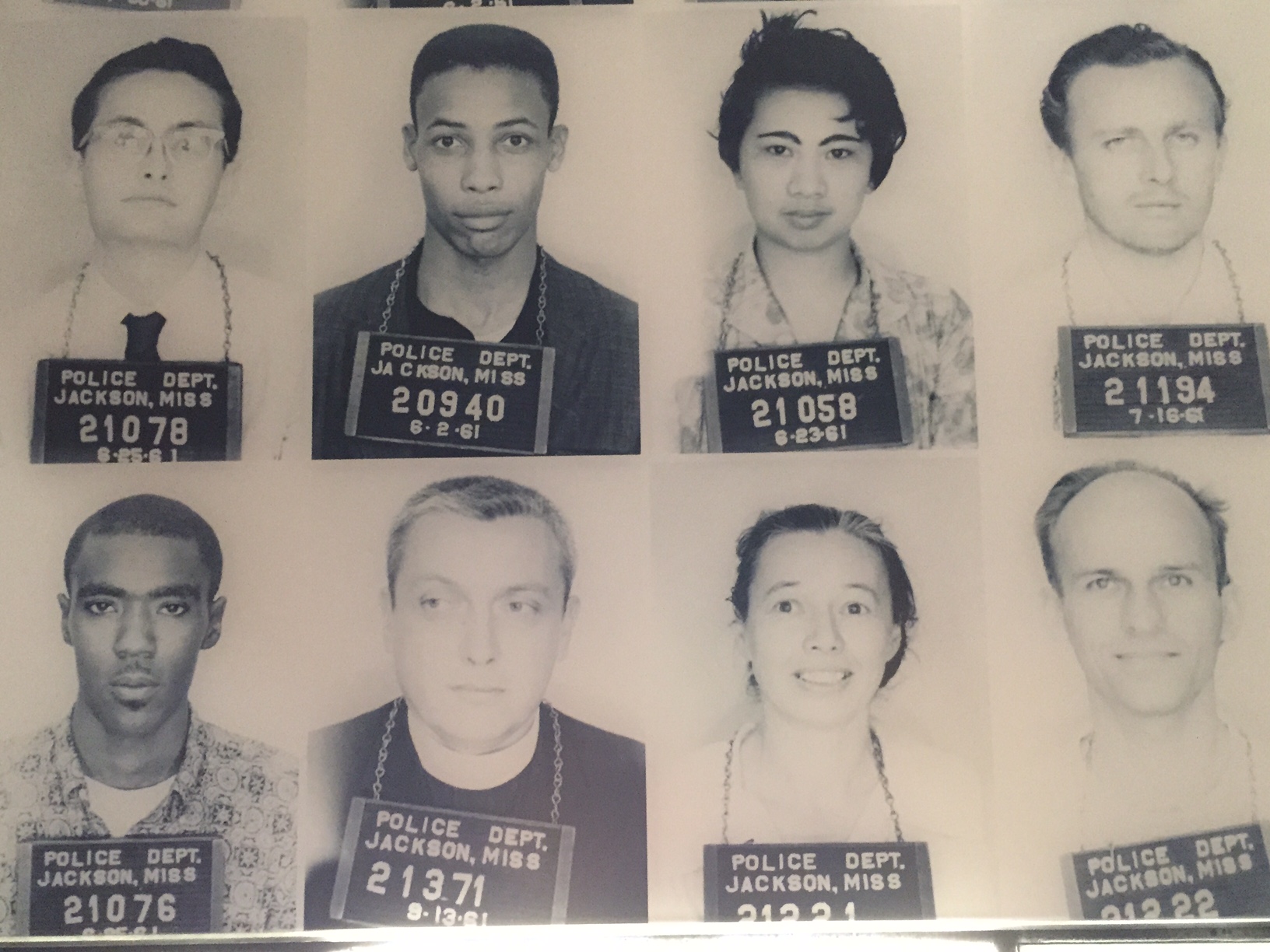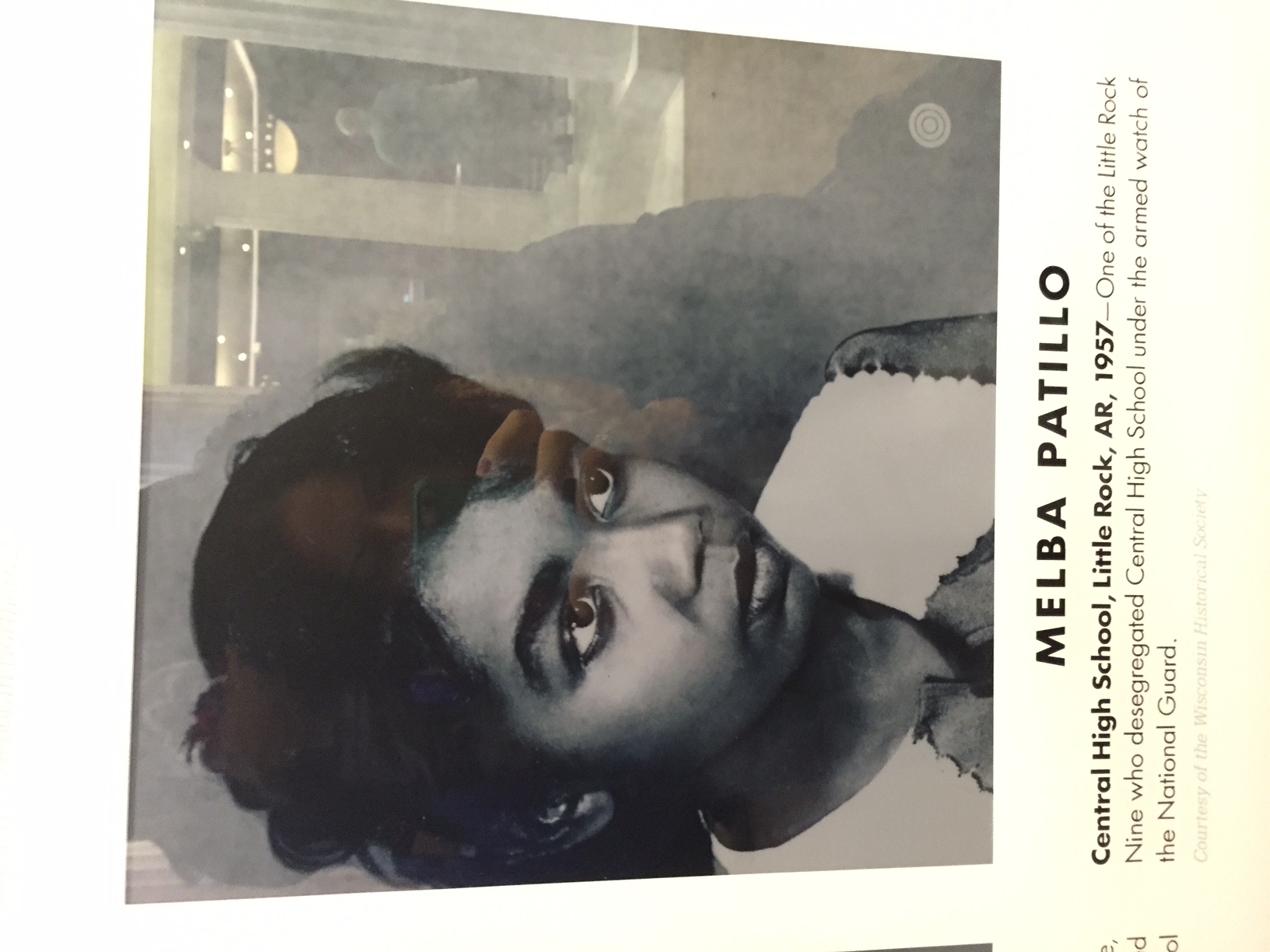A Little Child Shall Lead Them
“How wonderful it is that nobody need wait a single moment before starting to improve the world.”
-Anne Frank, age 15, March 26, 1944
I love this quote. I found it in Kelly Ingram Park in Birmingham, Alabama and it captures what I most believe about the world and about the beauty of young folks.
On my trip through the south I was blown away by the number of young children and students who put their lives on the line for equity. From the first graders like Leandrew Wiggins, who was one of the Memphis 13 to integrate city schools in 1961, to the thousands of Birmingham youth who were blasted by high-powered fire hoses, attacked by police dogs, and jailed as they marched for their basic human and civil rights, these young folks recognized that something very real was very wrong with society and they took action to change that.
Many of them lost their lives. We often hear about the four little girls – Cynthia Wesley, Denise McNair, Addie Mae Collins, and Carole Robertson – who were murdered on September 15, 1963 at 10:22 am when a bomb planted by a klansman in Birmingham’s 16th Street Baptist Church exploded. Three of them of were 14-years old and one was 11, the ages of my middle school students in the Bronx. They could have been my kids.
We rarely hear about two young black boys who were also killed that day. Virgil Ware, a 13-year old, was shot and killed by a white teenager while riding on the handle bars of his brother’s bike and Johnny Robinson, a 16-year old, was shot in the back by white Birmingham police officer Jack Parker.
I also think about the Freedom Riders, young college students from diverse racial background who came from all over the country to help integrate interstate buses and show solidarity with their black brothers and sisters. They were beaten, killed, set on fire, and attacked because they believed in integration. Would I have been so brave? Would I have left UC Berkeley, like many Freedom Riders did, to head south and make history?
There’s something incredibly powerful about young folks. The way they think. The way they commit. The way they engage. Their deep belief that anything is possible. As I reflect on how I’ll share this journey with my students I think a lot about what issues and injustices my kids feel most strongly about. Are there things that they would be willing to be beaten for? Attacked for? Die for? Honestly, I don’t know. I do know that they are part of a structured system that sets them and their families up – again and again – for failure.
In Martin Luther King’s eulogy for the victims of the 16th Street Baptist Church bombing he said, “They have something to say to each of us in their death…They say to us that we must be concerned not merely about who murdered them, but about the system, the way of life, the philosophy which produced the murderers.”
It’s more than 50 years later and we’re still dealing with systemic structures that oppress people of color and economically poor people in our country. This month 50-year old Walter Scott was shot in the back by white South Carolina police office Michael Slager. How much longer will white men in uniform think that it’s OK to kill black men and boys? 50-year old Walter Scott is 16-year old Johnny Robinson.
How are we as educators encouraging our youth to speak up against injustice? Are we helping them develop the skills to organize against racist, sexist, classist, and homophobic systems and structures? How are we supporting them to become critical thinkers, consumers, and challengers of the status quo?
During the civil rights era, segregation and second-class citizenship were the status quo.
Today, on the surface, our status quo looks a lot different but segregation and second-class citizenship are alive and well. I see it everyday in my school and community in the south Bronx. From high-asthma rates as a result of environmental racism to living in one of the poorest congressional districts in the nation, my students and families are treated like second-class citizens day in and day out.
So where do we start?
I look to my kids – with all of their adolescent quirks, their connections, and their digital tools – to lead us in not waiting a single moment before starting to improve the world. I look to my colleagues, families, and community to help develop strategies and methods for supporting our kids in changing the status quo so that it’s one where we're dismantling the system that Dr. King spoke about, instead of perpetuating it.
I look to the youth who more than 50 years ago risked and sacrificed their lives for freedom, equity, and the basic right to be treated as a human being. Their courage, intellect, and strength humble me and remind me that if they could do it then, my kids and I can do it, and then some, now. If we don’t know where we’ve been, we won’t know where we’re going. Infinite gratitude and thanks for those who have come before us.
